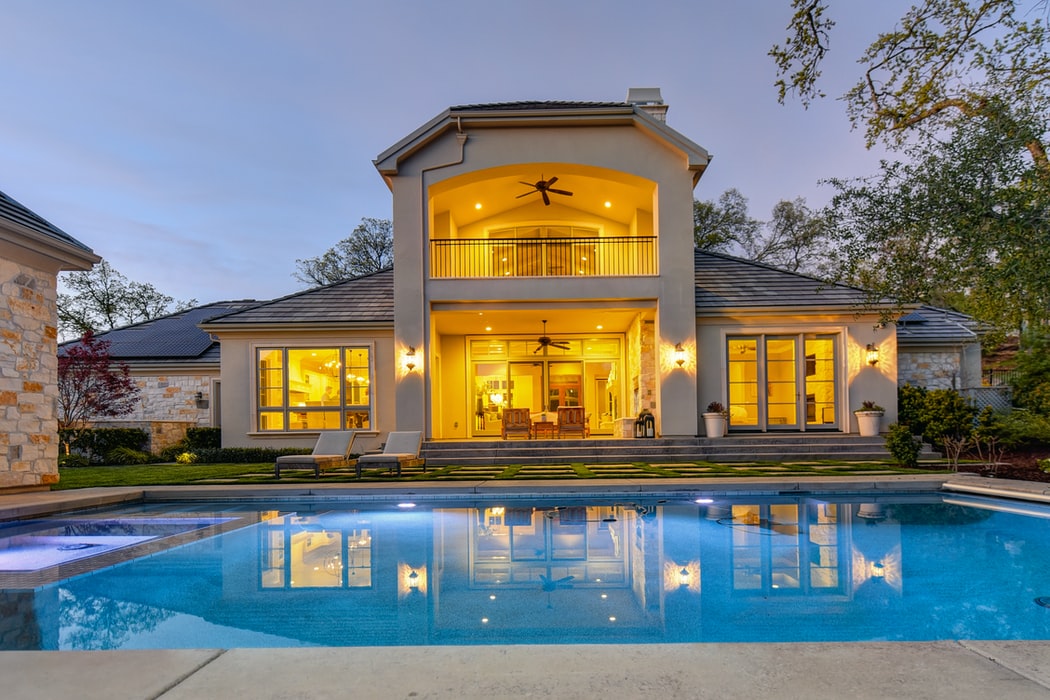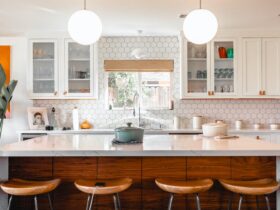

So you have decided to make the transition from renting to owning your home. Congratulations! To some, this can be a scary move considering that not many outside the construction industry are familiar with the ins-and-outs of building a house. Again, the peculiarity with building your own home is such that you can’t just end your lease and find a new place if the water pressure isn’t working quite right. When the home is yours, you most likely would have to fix it yourself.
If done rightly, building your dream home is one of the most rewarding investments you will make in your lifetime. We have prepared a list of 7 essential components in building your dream house. For clarity, this list has been compiled with the assumption that you have already acquired a land space to erect your dream home.
Plan ahead
Like everything else, it’s always good to plan. At this stage, you need to know exactly what you want out of your dream house. General areas for consideration might include:
- What is your family size, dependents, or number of pets?
- How secure is your location? Security considerations could affect your house design a lot more than you might anticipate.
- Do you have younger or older family members? Older members might mean you would actively consider accessibility in your home.
- How often do you have guests over?
You might also need to consider future possibilities surrounding your home. For instance, if you might need to resell in the future, what would be the resale value of your home? This can be determined by estimating the number of years you might own this home, adjust for inflation, and you can roughly determine the resale value of your home. That way, you will be able to tell if that expensive pool house you are thinking of adding is worth it in the long run.
Define your style and expectations:
It can be tempting to want to incorporate every amazing feature into your dream house. Having a definite expectation and being consistent will certainly help. A few things to consider include:
- Should your house be modern, traditional, or country? There are also numerous other options
- What kind of interior design appeals the most to you?
- How many rooms?
- What other additional amenities/facilities are you considering? E.g. a pool, a patio, powerhouse, service quarters, etc.
- Should you consider air-conditioning or insulation, depending on the climate of your home? (Bear in mind that more ACs would mean higher electricity costs)
- What house structure does your terrain support?
A good idea would be to create a home inspiration Pinterest board to pin ideas for your new home. In the future, this will help you communicate your overall idea to your architect or interior designer. Keep in mind that each design decision reflects budget-wise. So prioritizing your needs and expectations is essential.
Set a Budget
Conduct an initial financial assessment of your funding options. Be clear on the amount available to you before embarking on this building project. Homeowners often under-estimate the amount they need to build their home and over time, they would have to completely halt the building project due to lack of funds. If you will be taking on a bank loan or mortgage, be clear on how much will be granted to you as well as the repayment terms.
As a general rule of thumb, budget a value of at least an additional 30% of the construction costs for finishing, furnishing, and other contingencies. This will ensure you do not reach a financial roadblock in the course of your construction project. Additionally, you would most likely be working with professionals to actualize your dream home; for instance, architect, interior designer, quantity surveyor, contractor, etc. Their services often come at a predetermined fee. This is to be reflected in your overall building budget.
Employ the services of an experienced professional
At this stage, it is time to reach out to an experienced architect. It might be tempting to think that building construction is a straight-forward process. Without proper experience, you will be running the risk of making rookie mistakes in the course of the project execution. Construction mistakes can cost anywhere from a few hundred to thousands of dollars, depending on how serious. Extreme cases have seen the whole building being demolished because proper permits were not obtained, or the structural integrity of the building failed in the course of erecting the building. An architect will help mitigate all these problems and also serve as the middleman between you and the other professionals, such as the building contractor, quantity surveyor, etc.
Usually, your architect will take your brief and prepare an initial design presentation to ensure they have accurately visualized your home. Upon your approval, the proper costing of the project will be done to arrive at a more accurate project budget. Bear in mind that an architect’s fees can sometimes go as high as 7.5% of the total project costs, plus additional fees.
The architect usually ensures the proper permits, taxes, and government fees are obtained/paid for your intended project. He/she also ensures that building laws and codes are adhered to.
Obtain Accurate Estimates
Depending on how large the project is, you might need a quantity surveyor to prepare a cost breakdown of the project. Typically, the architect will make all these arrangements and negotiations, while keeping you fully updated.
The project duration could run well in excess of a year depending on how big your home would be, the construction technique, and of course your budget. If you are in a volatile economy like Nigeria, this should mean a lot to you. In just one year, inflation could cause the prices of each material unit to increase slightly. This slight increase could translate to very substantial amounts when you are talking about metric tonnes of it.
Some clever homebuilders bypass this bottleneck acquiring all materials you need at the present market rate well before they are required. But this would depend on several factors including the availability of storage space, your budget, effective foresight, and lack of logistical impediments.
Keep in the know
Always be in the know. If you are a construction novice, request that your architect translates every construction decision in lay terms. This will help you be aware of the consequence of each decision made regarding the project.
During construction, weekly or monthly site meetings are often held on the project. Ensure that you occasionally attend these meetings. Alternatively, ensure that the meetings are regularly sent to you so you are always aware of the project progress over time.
Document everything!
From permits to signed documents to orders, keep a record of everything related to your building project. Insist on written instructions where necessary, and ensure that any agreed-upon decisions are translated on paper. If a dispute arises, these documentations will come in handy in the court of arbitration.
Building your dream might be challenging as it is rewarding, but making adequate arrangements will help mitigate any negative outcomes from this adventurous venture.




























Welcome To KingsVineLuxury
KingsVine Luxury Limited is a homegrown, Nigerian online platform created with the city dweller in mind—expediently connecting them with premium quality products and services. !